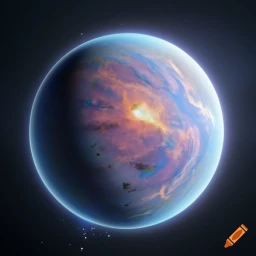
When assessing a planet's potential for supporting life, there are several factors that scientists consider. One of the key factors is the presence of liquid water. Water is essential for life as we know it, and the existence of liquid water on a planet increases the chances of it being able to support life. Scientists also look for planets with a stable atmosphere, as this is important for regulating temperature and protecting against harmful radiation.
Another crucial factor is the distance of the planet from its star, also known as the habitable zone or the Goldilocks zone. This is the region around a star where conditions are just right for liquid water to exist on a planet's surface. If a planet is too close to its star, the water will evaporate, while if it is too far away, the water will freeze. The right distance ensures that the planet maintains a habitable temperature range.
In addition to these factors, the planet's composition and the presence of organic molecules are also important considerations. The composition of a planet can affect its ability to support life, as certain elements and compounds are necessary for the development of living organisms. The presence of organic molecules, such as carbon-based compounds, is also a promising sign, as these molecules are the building blocks of life as we know it.
While scientists have made significant progress in identifying potentially habitable planets, the search for life-supporting planets is ongoing. With the help of advanced telescopes and space missions, astronomers are discovering new exoplanets (planets outside of our solar system) at an unprecedented rate. These discoveries are expanding our understanding of the vast possibilities in the universe and fueling excitement about the potential for finding extraterrestrial life.
In conclusion, while the exact number of planets that could support life is uncertain, scientists believe that there are numerous factors to consider when assessing a planet's potential for hosting life. The search for habitable planets continues to push the boundaries of our knowledge and inspire us to explore the endless possibilities of life beyond Earth.
---
Note: If the text above is not clear, the reason is probably that ShowMoor has encrypted it.
Press the ShowMoor -button, join the community and you can - in addition to this - enjoy everything the service has to offer - for a small subscription fee.